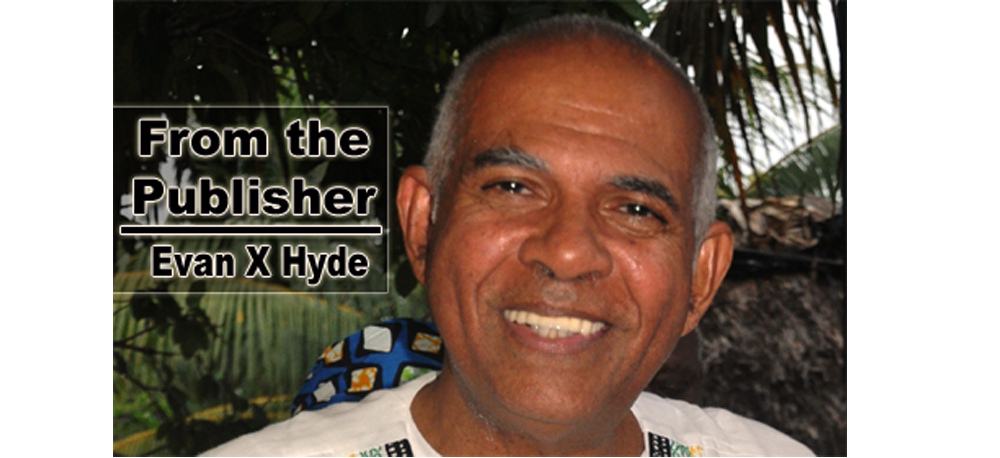When the United States of America declared the Monroe Doctrine in 1823, the United Kingdom (Great Britain) was still the dominant imperial power of planet earth, Napoleon Bonaparte of France having been defeated a few years before.
Graham Allison, in his Destined for War (2017, Houghton Mifflin Harcourt), described the Monroe Doctrine as declaring that the Western Hemisphere was no longer open for European colonization or foreign interference. Spain had lost a lot of its power in the Western Hemisphere when Mexico, Central America, and various countries in South America declared their independence in 1821 or so. But Britain still ruled most of the Caribbean and dominated Canada, so Allison’s opinion was that “the Monroe Doctrine was originally aspirational rather than operational and remained so for the remainder of the nineteenth century.”
Still, the United States grabbed a large swath of Mexican territory, from Texas to California, after a war between the U.S. and Mexico ended with the Treaty of Guadalupe Hidalgo in 1848. And between 1850 and 1859, when the U.S. basically arranged the 1859 border treaty between Guatemala and British Honduras, the U.S. signed treaties like Dallas-Clarendon and Clayton-Bulwer with the British which appeared to establish that American power was real and growing.
Belize did not become a British colony, as such, until 1862, and then British Honduras became a British Crown Colony in 1871. It has always been a vague analysis for me when I try to understand the technical difference between the woodcutting “settlers” and the regional British administrators in Jamaica. We know, specifically, that the settlers sent to these administrators in Jamaica for assistance when they voted on June 1, 1797, to defend the settlement from a threatened Spanish invasion out of the Yucatan. But after September 10 of 1798, the settlers often disrespected British “Superintendents.”
It seems clear that the settlers definitely accepted British imperial hegemony in 1871, because they were being intimidated by Marcos Canul, Rafael Chan, and the Icaiche Maya out of the Campeche area of the Yucatan, basically Belize’s northwest. At the same time, the settlers in Belize had a history of doing business with the Santa Cruz Maya, in the southeast of the Yucatan (Belize’s northeast), to whom they were selling guns and gunpowder.
The United States ended chattel slavery around 1863 during their civil war, which lasted from 1861 to 1865, and Belizeans of color began to visit America during the last part of the nineteenth century. (The expert in this research area is Belizean Dr. Jerome Straughan, who now lives in Los Angeles.) I know family members on my mother’s side travelled to New Orleans (by ship) in the early part of the twentieth century, and I met a granduncle (Wilson Belisle) and a grandaunt (Gladys Lindo Ysaguirre) who had been in New York from around 1920 or so. (That was when I went to school in America in the middle 1960s.)
Still, the United States did not pay serious attention to British Honduras until 1964, when Belize became a self-governing colony of the British. It should be mentioned, of course, that Washington opened its borders to Belizean refugees with relatives in America after Hurricane Hattie in 1961.
For their part, Belizeans began to fall in love with the United States when Belizeans went to work in Panama, where the U.S. had an American zone, in the 1940s and became infatuated with America’s freehandedness, which compared so very favorably with the mean British colonialism our people had experienced for many decades.
Now the Americans have just donated $250 million to Belize for education and energy purposes. It must be assumed that Belize has some role to play in Washington’s plans for the future.
The negative aspect of our situation, to my mind, is that Belize has absorbed a climate of violence in the last forty years which derives from our drawing closer to the American way of life. Law and order has broken down in Belize since our political independence was granted by the British, and the gun violence we have experienced since the late 1980s would have been unthinkable when I was growing up.
Since the attempt on his opponent’s life, U.S. President Joe Biden is refusing to admit that violence is a way of life in America. I remember that back in the 1960s, the black radical, H. Rap Brown, famously said that violence was as American as cherry pie.
Generally speaking, Belizeans do not appear to be intimidated by the violence in America, because our material standard of living has risen so sharply because of our diaspora’s participation in the American economy.
They say that everything has a price, and I think we all see a price was paid for the relative prosperity Belize enjoys in 2024. See ya.

